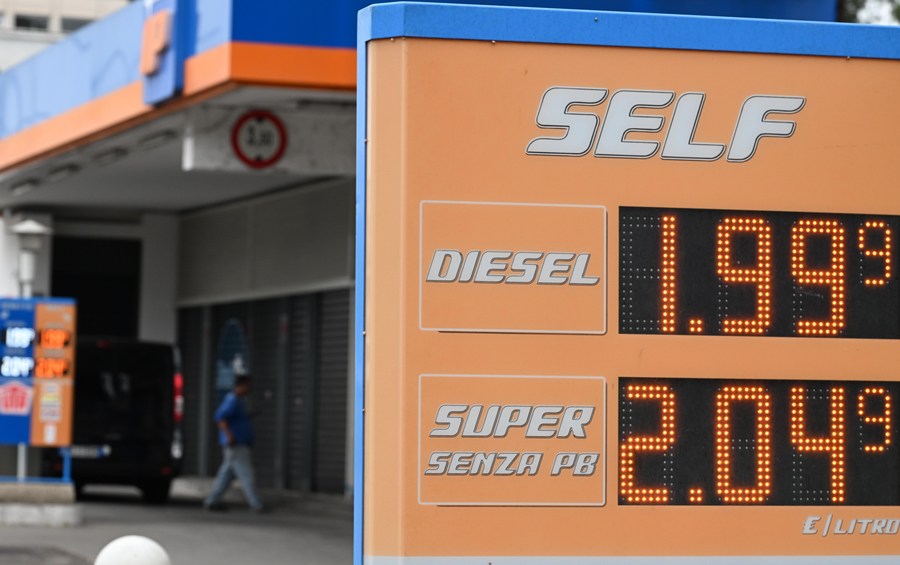Europeans left fearing worst on gas supplies
By CHEN WEIHUA in Brussels | China Daily | Updated: 2022-07-13 10:08

EU scrambles for solutions if pipeline from Russia doesn't come back online
The European Union is struggling to get on top of an unfolding energy crisis that is set to seriously hurt both the economy and the livelihoods of people in the region.
Plans for the regular annual maintenance of the Nord Stream 1 pipeline have sparked grave concerns over whether Russia will resume gas supplies after the work, which started on Monday. The work was scheduled to be completed in 10 days. Nord Stream 1 is the world's longest undersea natural gas pipeline linking Russia with Germany via the Baltic Sea. As such, it supplies a big chunk of the EU's gas needs.
The European Commission has imposed six rounds of economic sanctions on Russia following the Feb 24 outbreak of the Russia-Ukraine conflict, with a focus on cutting its excessive dependency on Russian energy. Russia has also cut or reduced gas supplies to 12 EU member states, the latest being a decision by energy giant Gazprom on Monday to slash supplies to Italy by about a third.
European Commissioner for Economy Paolo Gentiloni said the EU is aware that it is "in troubled water" with "possible stormy weather coming". He said on Monday that the European Commission will present a plan on July 20 to deal with any possible emergencies.
"We hope to be in any case able to manage," he told a media conference held by the Eurogroup in Brussels on Monday.
He admitted that the current efforts to find alternative sources from the United States, Norway and Qatar are not enough to solve the problem.
Paschal Donohoe, the president of the Eurogroup, an informal body for government ministers to discuss policies, said that "change in the supply of energy will pose a risk to the ability of our economy to grow".
Tim McPhie, the European Commission's spokesman for climate and energy, said the EU's executive body has been working on the plan, known as an emergency energy reduction plan, for several months and it will focus more on industrial uses.
"It's about coordination across the European Union if we do face more significant disruptions," he told a daily briefing on Monday. He said the plan is aimed at ensuring that the member states receive guidance on its implementation and its impact on the single market, while reassuring them of the bloc's full solidarity, such as in situations when some members have more supply than others.
"The situation is clearly serious. So we need to be adequately prepared for any eventuality," McPhie said.
'Unprecedented situation'
Robert Habeck, Germany's minister for economic affairs and climate action, told German public radio that "we are confronted by an unprecedented situation-anything is possible".
He said that while the gas flows could restart at an even higher volume after the pipeline maintenance, it is also possible that nothing comes through.
"We still have to prepare for the worst," said Habeck, who is also Germany's vice-chancellor.
Gazprom cut the flow through Nord Stream 1 to Germany to 40 percent of the pipeline's capacity in mid-June, citing a delay in the return of equipment being repaired by Siemens Energy. The Canadian government said it is returning a repaired Siemens turbine for the pipeline, a move that has drawn protests from Ukraine.
McPhie said that the sanctions on Russia do not cover the technology governing the transfer of natural gas, and the return of the turbine means that one of Russia's potential excuses to reduce gas supply has been removed.
French Economy and Finance Minister Bruno Le Maire also warned on Sunday that a total shutdown of Russian gas to Europe was "the most likely option", saying "we have to anticipate and to put ourselves in order of battle as of now".
Across Europe, political leaders are urging people to save energy, including taking shorter showers and dimming streetlights.
Vonovia, the largest real estate group in Germany, is planning to lower the default temperature in gas-heated buildings to a room temperature of 17 C at night, a move it estimates will reduce consumption by 8 percent, German broadcaster DW reported.
According to a study published on July 7 by the Brussels-based think tank Bruegel, the EU needs to cut demand by 15 percent over the next 10 months if Russia cuts off all supplies of natural gas.
A study in June by Prognos, also based in Brussels, showed that Germany's economic output could drop 12.7 percent by the end of the year if Russian gas is entirely cut off.
Sectors such as steel, chemicals and glass would be hit the hardest, with production expected to fall by around 50 percent.
























